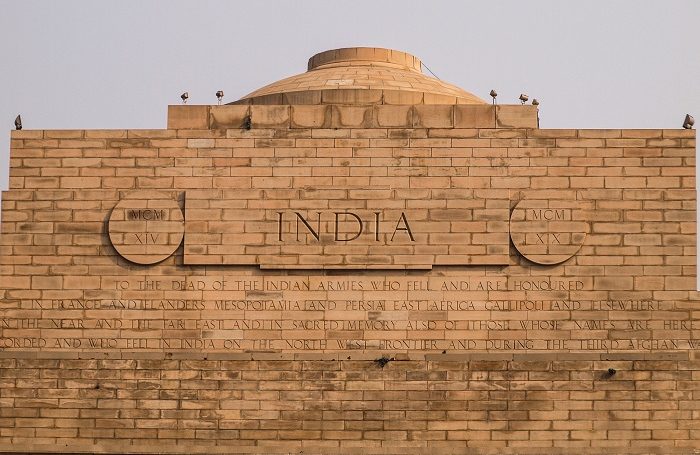
Brexit’s impact on India and its relationship with the UK continue to garner significant attention and even more speculation. What are its implications for bilateral ties and how does India view the UK’s controversial decision to leave the EU? Will Brexit allow the two countries to forge an even closer relationship as supporters of the Leave campaign allege, or has the vote introduced a new degree of uncertainty into the relationship?
As a former British colony and current member of the Commonwealth, India enjoys longstanding political, commercial, trade, and cultural ties with the UK. Coverage of the Brexit referendum in India in the weeks and months preceding the vote rivaled that seen in the UK. Debate over the wisdom of Brexit and what it portended for India was ubiquitous throughout the country.
Coverage since the vote has unsurprisingly focused on the adverse consequences of the referendum result. For India, however, Brexit presents some potential opportunities in the short-to-medium term. The falling value of the Pound relative to the Rupee has rendered the UK a cheaper, more attractive destination for Indian companies seeking to buy high-priced commodities such as real estate. India is likely to appear a more appealing destination for foreign investment relative to the UK given the pace of its economic growth combined with the enduring uncertainty around Brexit. Moreover, the economic nationalism and protectionism emanating from the United States make it more likely that emerging markets, like India and China, will capture an even larger percentage of global trade.
Conversely, Indian companies with exposure in the UK remain vulnerable to a slate of new risks and challenges created by Brexit. More than 800 Indian-owned companies operate in the UK, employing over 110,000 individuals and generating more than £26 billion annually. These companies include some of India’s most prominent corporations, including the Tata Group. The prospect of higher tariffs for their exports, new regulatory and immigration policies, and a lower exchange rate have compelled these companies to reevaluate their long-term investment in the UK as well as rethink their business models more broadly.
A central narrative that has emerged from the aftermath of the vote has been the notion that Brexit will result in closer bilateral ties between the UK and India, particularly in trade. The two countries already share deep economic ties: India is UK’s second biggest job creator third largest investor while the UK holds the distinction of being India’s largest G-20 donor. According to proponents of the Leave campaign, Brexit would dramatically bolster the existing bilateral commercial relationship by allowing the UK to pursue a more robust trade deal with India unencumbered by the onerous regulations imposed by EU membership. In fact, it continues to be widely understood that enhancing existing ties with India in this realm constitutes a key component of ensuring the UK’s post-Brexit economic security.
Many in the UK cast the prospect of reaching a free trade agreement with India—which has so far proven elusive—as finally within reach. Headlines proclaiming India’s status as “Britain’s first choice for post Brexit trade deal,” became increasingly common in both countries after the referendum.
The weeks and months following the vote witnessed a parade of UK officials, including Prime Minister Theresa May and Foreign Minister Boris Johnson, traveling to India to establish the framework of a future agreement. But political considerations as much as economic ones have motivated these efforts—striking a deal would lend credibility to claims made by Brexiters regarding the advantages the UK would enjoy by leaving the EU.
The view from India is more complex. Although New Delhi has been amenable to the UK’s outreach thus far, London’s ability to secure a trade deal with India has been complicated by an issue at the heart of the Brexit debate: immigration. The UK has enacted a slate of immigration policies in recent years that have reduced the number of visas being granted to Indian nationals. The number of Indian nationals studying in the UK, for example, fell to 16,745 in 2015-16 from 29,900 in 2011-12. Enacting more stringent policies to curtail immigration to the UK represented a key pillar of the Leave campaign’s platform. For obvious political reasons, the May government must maintain fidelity to this principle.
From India’s perspective, access to its markets will be conditioned on the UK liberalizing its existing visa regime toward India. In New Delhi’s view, trade and immigration are linked. The free flow of goods cannot be divorced from the free movement of people. Indian officials, including Prime Minister Narendra Modi, have emphasized that the UK represents India’s entry point into the EU.
May’s visit to India in November 2016 thrust these competing concerns into sharp focus. Her first international trip after the referendum, the state visit was intended to signal India’s importance to the UK’s post-Brexit plans, and, to that end, it was billed as a significant first step toward laying the groundwork for an eventual deal. Instead, the visa issue quickly overshadowed the visit, with Indian officials stressing the importance of maintaining “mobility” between the two countries.
As a result, any meaningful trade agreement between the countries is unlikely until the UK institutes so-called “visa reform.” Despite the rhetoric coming from London, the erstwhile crown jewel of the British Empire is unlikely to be swayed by entreaties invoking the two countries’ shared colonial past—especially, given their respective roles in that former relationship.
On the contrary, the idea that self-interest must govern negotiations with the UK is the prevailing sentiment in New Delhi. Animating this new attitude is the belief that the power of balance between the two nations has shifted markedly in India’s favor. Whether that reflects reality is an open question. What is clear, however, is that formidable political and economic challenges between the two countries must be resolved before any agreement can be reached.